Πολιτισμοί, Μεταναστεύσεις, Σύνορα - MigBord2022
HEATH CABOT (hcabot@pitt.edu) - UNIVERSITY OF PITTSBURGH
Heath Cabot (PhD 2010, University of California, Santa Cruz) is an associate professor of anthropology at the University of Pittsburgh and is an incoming associate professor of anthropology at the University of Bergen. Her research has focused on displacement, legal advocacy and exclusion, belonging and citizenship, and, more recently, health and healing. She has done field research in Greece (since 2004) and Italy. She is author of On the Doorstep of Europe: Asylum and Citizenship in Greece (University of Pennsylvania Press, 2014) and is currently completing a second monograph on grassroots healthcare activism in Greece.
Selected publications:
(2022) Deexceptionalizing Displacement: An Introduction. Humanity: An International Journal of Human Rights, Humanitarianism, and Development 12 (3): 286-299
(2019) The business of anthropology and the European refugee regime
American Ethnologist 46 (3), 261-275
(2019) The European refugee crisis and humanitarian citizenship in Greece. Ethnos 84 (5), 747-771
Book:
(2014) On the Doorstep of Europe: Asylum and Citizenship in Greece.
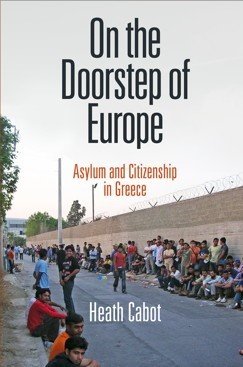
JANE COWAN (j.cowan@sussex.ac.uk) - UNIVERSITY OF SUSSEX
Jane Cowan is Professor Emeritus at the University of Sussex, Brighton UK, where she taught anthropology and human rights from 1991- 2020. She received an MA (1982) and PhD (1988) in Sociocultural Anthropology and Ethnomusicology from Indiana University, Bloomington. At Sussex, in addition to her anthropology teaching and administration, she co-founded and co-directed the Sussex Rights and Justice Research Centre (now the Sussex Centre for Rights and Anti-colonial Justice https://www.sussex.ac.uk/justice/) and convened two interdisciplinary masters programmes: the MA in Human Rights and the MSc in Social Research Methods. Jane’s early research focused on gender, power, identity and embodiment. The book based on her doctoral research, Dance and the Body Politic in Northern Greece (Princeton, 1990; winner of the 1989 Esther L. Kinsley PhD Dissertation Award and the 1991 Chicago Folklore Prize), examined the construction of gendered identities and relations within social dancing. Her fieldwork in the ethnically mixed, multilingual Macedonian region alerted her to its population's multiple and complex responses to nation-building practices and led to a broader interest in culture and rights, the emergence of the concept of “minority” and the historical evolution of international oversight of rights and protections. Jane has carried out archival research at the League of Nations Archives and has published a series of articles since 2003 focusing on claims for rights and for Macedonian nationhood made on behalf of the so-called ‘Bulgarian minorities’ in Yugoslavia and Greece. In 2010-2011, Jane conducted fieldwork (with Julie Billaud) on the Universal Periodic Review, a United Nations human rights monitoring mechanism in Geneva. She is currently researching collaborations between the Women’s International League for Peace and Freedom (WILPF) and Balkan women’s organizations in the context of international political activism around minorities in the interwar period.
Selected publications:
(2008) “Fixing national subjects in the 1920s Southern Balkans: Also an international practice”, American Ethnologist 35(2): 338-356.
(2006) “Culture and Rights after Culture and Rights”. American Anthropologist 108(1): 9-24.
(2001) (with M Dembour and R Wilson) Culture and Rights: Anthropological Perspectives (Cambridge).
(2000), Macedonia: The Politics of Identity and Difference (Pluto).
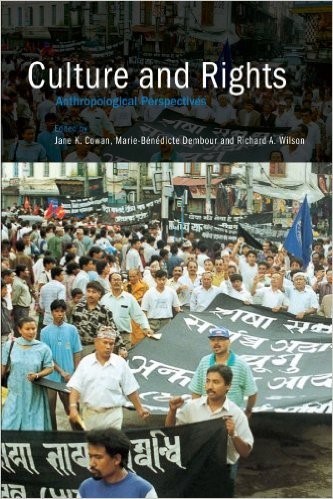
PAOLO CUTTITTA (paolocuttitta@tiscali.it) – UNIVERSITE SORBONNE PARIS NORD
Paolo Cuttitta is an affiliate researcher at the University of Sorbonne Paris Nord, where he was a Marie Skłodowska-Curie fellow from 2019 to 2021. A geographer and sociologist, he received a PhD in Human Rights from Palermo University in 2006 and held research and teaching positions at Palermo University and Vrije Universiteit Amsterdam. Since 2003, he has also visited at various research institutions in Berlin, Tunis, Hamburg, Cairo and Flensburg. Paolo has published extensively on (humanitarian) migration and border management across the Central Mediterranean. Most recently, his research has focused on non-governmental and civil society organisations, both on land (in Libya, Tunisia and Egypt) and at sea (in the Central Mediterranean), and on the relationship between their activities and the European externalisation of migration control. His book publications include Segnali di confine. Il controllo dell’immigrazione nel mondo-frontiera (2007) and Lo spettacolo del confine. Lampedusa tra produzione e messa in scena della frontiera (2012), as well as the co-edited volumes Border Deaths. Causes, Dynamics and Consequences of Migration-related Mortality (2020, with T. Last) and Migrazioni, frontiere, diritti (2006, with F. Vassallo Paleologo).
Author of
(2020) Non-governmental/civil society organizations and the EU-externalization of migration management in Tunisia and Egypt. Population, Space and Place, 26(7)
(2020) Border Deaths. Causes, Dynamics and Consequences of Migration-related Mortality. Amsterdam: Amsterdam University Press (with T. Last)
(2018) Repoliticization Through Search and Rescue? NGOs and Humanitarian Migration Management in the Central Mediterranean. Geopolitics, 23(3)
(2018) Delocalization, Humanitarianism and Human Rights.The Mediterranean Border between Exclusion and Inclusion. Antipode, 50(3)
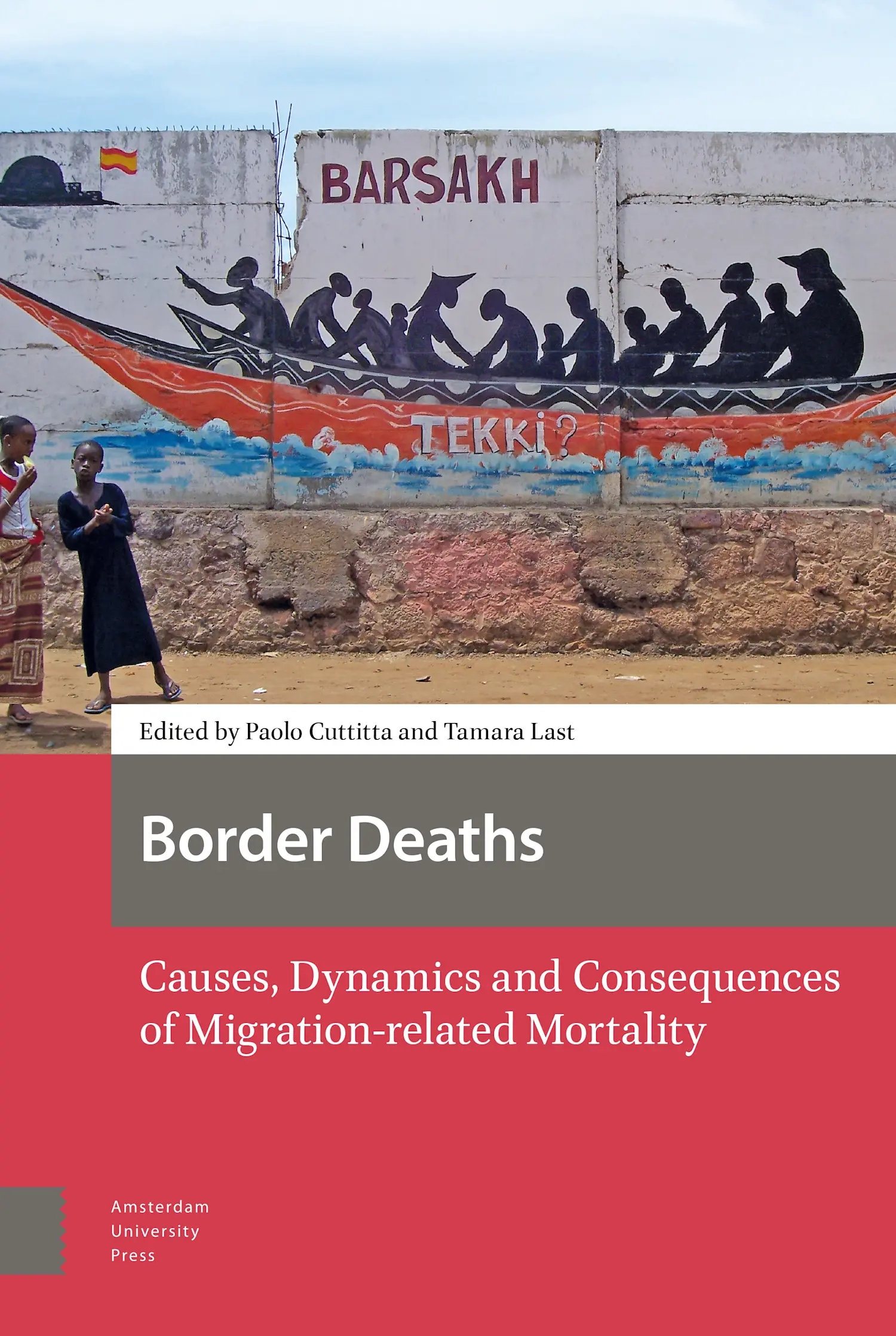
SARAH GREEN (sarah.green@helsinki.fi) - UNIVERSITY OF HELSINKΙ
Sarah Green is Professor of Social Anthropology at the University of Helsinki. She is a specialist on location, borders and spatial relations, though the subject matter of her research over the last 20 years has been diverse and has included among others the politics of gender and sexuality, conceptions of the environment, circulation of money in the Aegean, border relations on the Greek-Albanian border and, most recently, the shifting concept of border in the eastern peripheries of Europe. Her publications include Notes from the Balkans (2005; Princeton University Press) winner of the Douglass Prize for best contribution to Europeanist Anthropology; and Urban Amazons (1997), an ethnography on separatist feminists in London. In 2008, Professor Green launched an international research network, EastBordNet dedicated to developing new approaches towards the study of borders on the eastern peripheries of Europe, from the Baltics and environs down to the Balkans and environs. The network (EastBodNet) now involves 27 countries and over 280 researchers.
Co-author of (2013) Borderwork: A visual Journey through Peripheral Frontier Reginos.
Author of (2005) Notes from the Balkans: Locating Marginality and Ambiguity on the Greek-Albanian Border.

MICHAEL HERZFELD (herzfeld@fas.harvard.edu) - HARVARD UNIVERSITY
Michael Herzfeld is Ernest E. Monrad Research Professor of the Social Sciences in the Department of Anthropology at Harvard University, IIAS Visiting Professor of Critical Heritage Studies Emeritus, Leiden University; Senior Advisor, Critical Heritage Studies Initiative, International Institute of Asian Studies, Leiden; a member of the doctoral research program in Beni Culturali, Formazione e Territorio, University of Rome “Tor Vergata”; and Chang Jiang Scholar, Shanghai International Studies University. Author of twelve books (most recently Subversive Archaism: Troubling Traditionalists and the Politics of National Heritage, 2022) and numerous articles and reviews, and producer of two ethnographic films, he has served as editor of American Ethnologist (1995-98) and is currently editor-at-large (responsible for “Polyglot Perspectives”) at Anthropological Quarterly. His research in Greece, Italy, and Thailand has most recently addressed the social and political impact of historic conservation and gentrification, the dynamics of nationalism and bureaucracy, and the ethnography of knowledge among artisans and intellectuals.
Author of
(2022) Subversive Archaism: Troubling Traditionalists and the Politics of National Heritage
(2021) Ritual and Ritualism in a Contested Sea: Scalar Distortions of Space and Time in Marc Brightman and Vanessa Grotti, eds., Migrant Hospitalities in the Mediterranean: Encounters with Alterity in Birth and Death
(2021) Methodological Legalism in Cristiana Panella and Walter E. Little, eds., Norms and Illegality: Intimate Ethnographies and Politics .
(2020) Ours Once More: Folklore, Ideology, and the Making of Modern Greece
SETH M. HOLMES (sethmholmes@usc.edu) - UNIVERSITY OF SOUTHERN CALIFORNIA
Seth M. Holmes, PhD, MD, is a cultural and medical anthropologist and physician who is Dean's Professor of Anthropology and Professor of Medical Education at the University of Southern California. He is also the Founding Director of the USC Program in Social Medicine. He has worked on social hierarchies, health inequities, and the ways in which such asymmetries are naturalized, normalized, and resisted in the context of transnational im/migration, agro-food systems, and health care. He has received national and international awards from the fields of anthropology, sociology, and geography, including the Margaret Mead Award. In addition to scholarly publications, he has written for popular media such as The Huffington Post, The Guardian and Salon.com and spoken on multiple National Public Radio, Public Radio International, Pacifica Radio and Radio Bilingüe radio programs. Most recently, he is the recipient of a European Research Council Consolidator Award for the project, FOODCIRCUITS, which will investigate connections between migrants and the rest of societies as well as the ways in which these connections are invisibilized through transnational food systems in Western Europe, Eastern Europe, North Africa, South America, and North America.
Author of:
(2013) Fresh Fruit, Broken Bodies: Migrant Farmworkers in the United States.
(2015) "Immigration as a Social Determinant of Health"
(2016) Virtual Issue: "Refugees and Im/migrants: Anthropology and Human Displacement"
(2017) "Marking Preemptive Suspects: Migration, Bodies and Exclusion"
(2020) Special Issue: "Bienestar - The Wellbeing of Latinx Farmworkers in a Time of Change"
(2021) "Deservingness: Migration and Health in Social Context"
(2022) "How Should Physicians Express Solidarity with Asylum Seekers at the US-Mexico Border?"
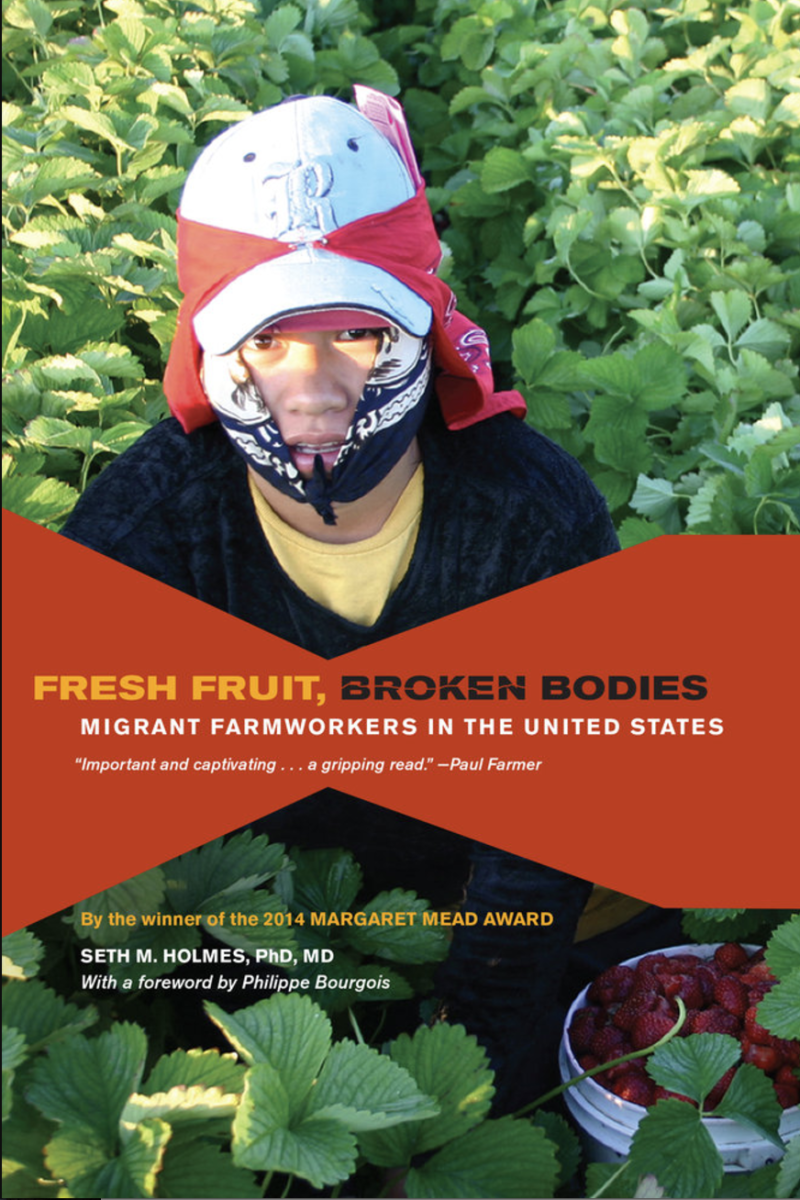
LAURIE KAIN HART (lkainhart@gmail.com) - UNIVERSITY OF CALIFORNIA
Laurie Kain Hart is Professor of Anthropology at the University of California at Los Angeles and former Edmund and Margiana Stinnes Professor of Global Studies and Chair of the Department of Anthropology at Haverford College. She holds a Master of Architecture from the University of California, Berkeley, and a PhD in Anthropology from Harvard University. Her research interests include a) violence, civil war and "ethnic cleansing"; ethnicity, religion, pluralism, geopolitical borders b) space, architecture, art, material and visual culture c) medical and psychoanalytic anthropology, public health risk environment d) kinship and gender. She is the author of Time, Religion, and Social Experience in Rural Greece (1992), editor of Good People in Evil Times (Narratives of Bosnian War by Svetlana Broz) (2005), and co-editor of When Women have Differences: Oppositions and Conflicts among Women in Contemporary Greece, as well as author of articles on the long term effects of civil war, ethnic displacement, and violence. Her recent work focuses on Northern Greece (on former child political refugees of the Greek Civil War) and urban Philadelphia (collaborative research on urban segregation and social marginalisation, incarceration, and the medicalisation of poverty).
Author of Culture, Civilization, and Demarcation at the Northwest Borders of Greece (1999) &
Good People in an Evil Time: Portraits of Complicity and Resistance in the Bosnian War. (2005)
Recent Publications:
2017 (In Press) “The Material Life of War at the Greek Border” Social Anthropology, Special Issue, “Post-Ottoman Topologies.” Ed. Nicolas Argenti, University College, London.
2014 (co-author) 2014 "The Moral Economy of Violence in the US Inner City." Current Anthropology. 55(1): 1–22. "Reply: Situating Moral Economies." Current Anthropology 55(1): 18–22.
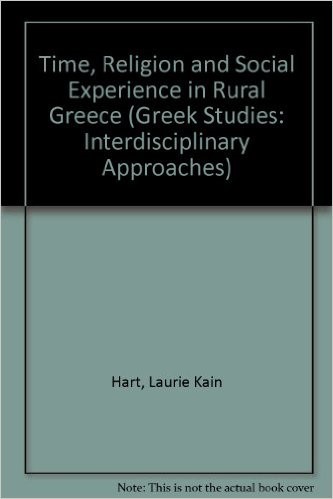
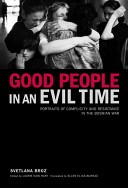
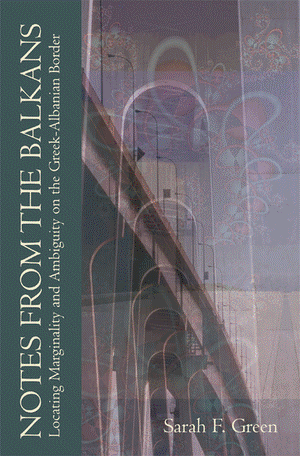
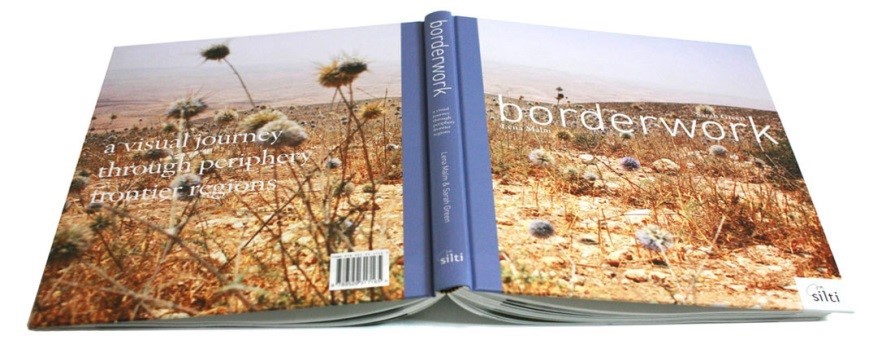
BARAK KALIR (B.Kalir@uva.nl) - UNIVERSITY OF AMSTERDAM
Barak Kalir is Associate Professor at the Department of Sociology and Anthropology at the University of Amsterdam. He is co-director of the Institute for Migration and Ethnic Studies (IMES) and program director of the two Masters Programmes. From 2006 to 2009 he was a post-doc researcher and programme coordinator of the WOTRO/NWO Integrated Programme: Illegal but Licit on transnational flows in Asia. He has published several articles and book chapters on the subject of migration, like ‘Uncovering the Legal Cachet of Labor Migration to Israel’ in David and Koslowski (eds.) Global Human Smuggling Johns Hopkins University Press (2011). His book Latino Migrants in the Jewish State: Undocumented Lives in Israel (Indiana University Press, 2010) has been nominated for the Book Prize awarded by the Society for Economic Anthropology and has been awarded the highest recommendation at the influential American review Choice. Kalir has also co-edited with Malini Sur “Transnational Flows and Permissive Polities: Ethnographies of Human Mobilities in Asia” IIAS Publication Series, Amsterdam UP (2012). He is currently directing a 5-year ERC-funded research project on the Social Life of State Deportation Regimes (The Social Life of State Deportation Regimes: A Comparative Study of the Implementation Interface) in Spain, Greece, The Netherlands, Ireland, India, Israel and Ecuador.
Author of The deportation continuum: convergences between state agents and NGO workers in the Dutch deportation field (2015) &
Co-editor of Transnational Flows and Permissive Polities: Ethnographies of Human Mobilities in Asia. (2012) (see also)
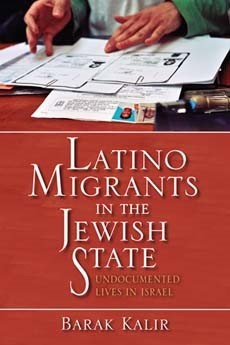
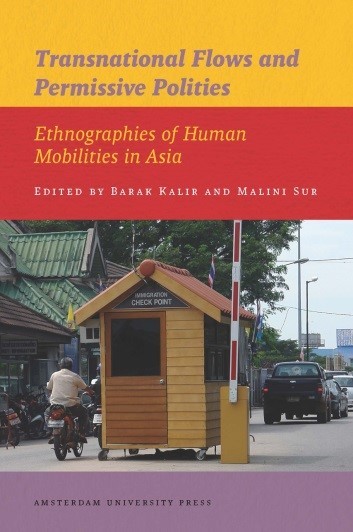
FLIP LINDO (flip.lindo@gmail.com) - UNIVERSITY OF AMSTERDAM
Flip Lindo took his BA in Sociology and his MA in Anthropology at the University of Amsterdam (1981). He holds a PhD in the Social Sciences from Utrecht University (1996). He worked as a Senior Research Fellow and Lecturer in the Department of Sociology and Anthropology of the University of Amsterdam, until his retirement in 2013. He has done fieldwork in Northern Greece and the Netherlands. His research topics included immigrant youth, interethnic relations, and processes/discourses of inclusion and exclusion. Nowadays he does not research anymore, but volunteers for the Dutch Council of Refugees (VluchtelingenWerk), helping refugee families who have settled in his home municipality. He remains actively interested in how people make sense of experiences from their successive face-to-face interactions pertaining to their decision to flee their home, to the preparation of their journey, to the journey itself, to their reception in the Netherlands, to their processing into "licensees" ('vergunninghouders'), to the trials and tribulations of the requirement of 'civic integration' ('inburgering') and to their settling in locally while trying to remain reconciled with their loved ones who are far away.
EVTHYMIOS PAPATAXIARCHIS (epapat@sa.aegean.gr) - UNIVERSITY OF THE AEGEAN
Evthymios Papataxiarchis is Professor of Social Anthropology at the University of the Aegean where he directs the Postgraduate Program on “Social and Historical Anthropology” and the Laboratory of Ethnography. He holds a Bachelors and a PhD degree in Social Anthropology from the London School of Economics. Professor Papataxiarchis has taught as a visiting professor in the Universities of Athens and Crete, in the École des HautesÉtudesen Sciences Sociales (Paris) and in Bogadici University (Istanbul). His publications include Lilies of the Field: Marginal People Who Live for the Moment, (ed. with S. Day and M. Stewart, Westview Press, 1999), Adventures of Alterity: The Production of Cultural Difference in Contemporary Greece, (ed., Alexandria Publications, 2006, in Greek), Worlds of Domestic Labour: Immigration, Gender and Cultural Transformations in early 21th century Athens, (with Penelope Topali and Aggeliki Athanassopoulou, Alexandria Publications, 2008, in Greek). He has also edited special issues of Ethnologie Française(v. 35, 2005) and Synchrona Themata (v. 98, 2007 and v.107, 2009) on cultural differentiation and the challenge of migration in contemporary Greek society.
Author of Being 'There' (2016) & La Grèce face à l’altérité (2005)
Editor of GRÈCE.ΕΛΛΑΔΑ. Figures de l’altérité (Ethnologie française, 2005) &
Adventures of Alterity: The Production of Cultural Difference in Contemporary Greece (2015) (Second edition, in Greek)
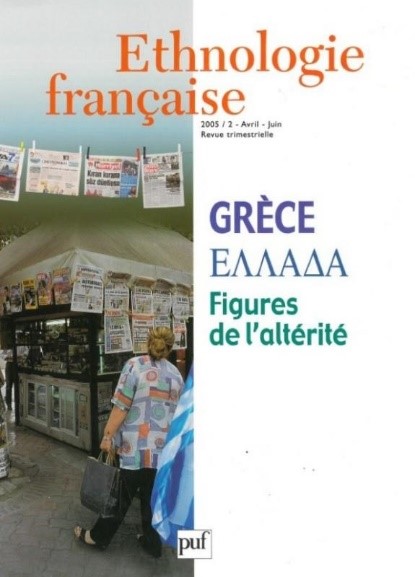
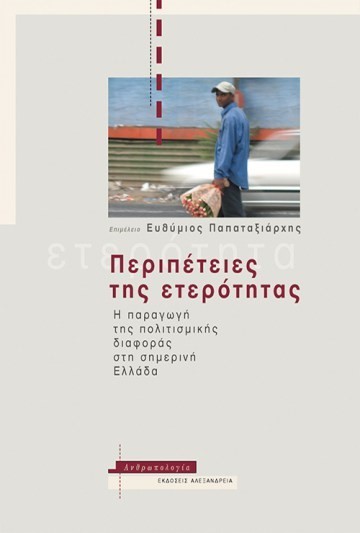
EFFIE PLEXOUSAKI (eplex@sa.aegean.gr) - UNIVERSITY OF THE AEGEAN
Effie Plexousaki is Assistant Professor of Social Anthropology at the Department of Social Anthropology and History at the University of the Aegean. She has studied Law (BA, National and Kapodistrian University of Athens) and holds a Master and a PhD degree in Ethnology and Social Anthropology from the École des Hautes Études en Sciences Sociales at Paris. She has taught at the University of Crete, Panteion Panepistimion (Athens) and at University of Athens. She has participated as a basic researcher at a long-term educational intervention titled “Education for the Muslim Minority Children in Thrace”, funded by the European Social Fund and the Greek Ministry of National Education and Religious Affairs (EPEAEK I and EPEAEK II). From 2002 to 2013 was member of the Scientific and Coordination Comittee of the above project. Her research interests focus on anthropology and ethnography of the Mediterranean, on minorities and education and on inter-ethnic relations and sociality. She is the author of the book “Culture and school” (2004) conceived as training material for teachers who work with minority children in Thrace (The “Keys and Master-Keys” Booklet Series, Web-site http://www.kleidiakaiantikleidia.net), and has edited the book “Metamorphoses of nationalism: Performances of the collective identity in modern Greece” (2014).
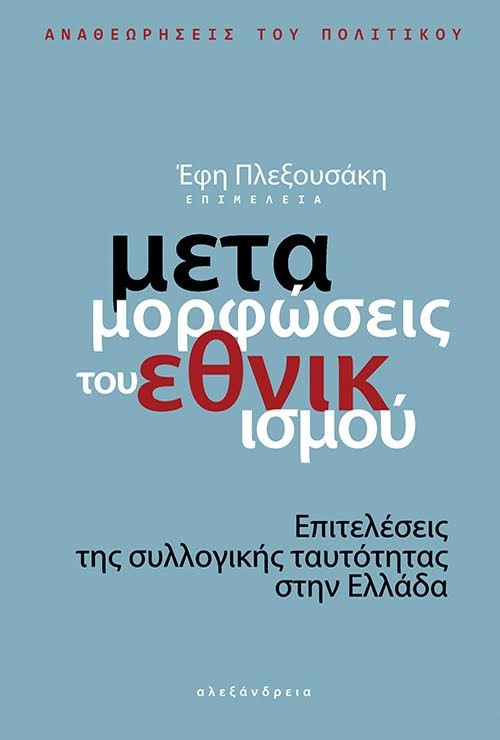
KATERINA ROZAKOU (K.Rozakou@uva.nl) - PANTEION UNIVERSITY
Katerina Rozakou is an assistant professor of anthropology at Panteion University of Social and Political Sciences. Her research interests include humanitarianism, volunteerism, solidarity, the state, sovereign power, and migration. She received her PhD in Social Anthropology at the University of the Aegean and she has worked as a postdoctoral researcher at Princeton University and at the University of Amsterdam. Her most recent project was an exploration of the governance of the “migration crisis” in Greece and state/ non-state practices of deportation. Her publications include the monograph "Out of 'love' and 'solidarity': Voluntary work with refugees in early 21st century Athens" (2018; in Greek, English version in preparation) and the co-edition of the volume “Greek paradoxes: Civil society, patronage and violence” (2013).
Author of
(2018), Out of 'love' and 'solidarity': Voluntary work with refugees in early 21st century Athens. (in Greek)
(2017), “Non-recording the “European refugee crisis” in Greece: Navigating through irregular bureaucracy". Focaal 77: 36-49;
(2016a), “Crafting the volunteer: Voluntary association and the reformation of sociality”, Journal of Modern Greek Studies 34 (1): 78–101;
(2016b), “Socialities of solidarity: Revisiting the gift taboo in times of crises”, Social Anthropology 24(2): 185-199;
(2013) Greek Paradoxes: Patronage, Civil society and Violence. (in Greek)
(2012) "The biopolitics of hospitality in Greece: Humanitarianism and the management of refugees", Journal of the American Ethnological Society 39 (3): 526–577 &
(2011) The Pitfalls of Volunteerism.The Production of the New, European Citizen in Greece.
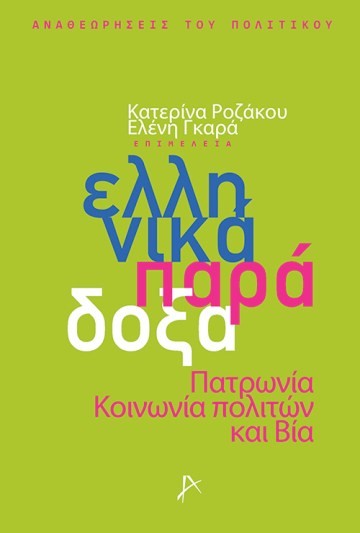
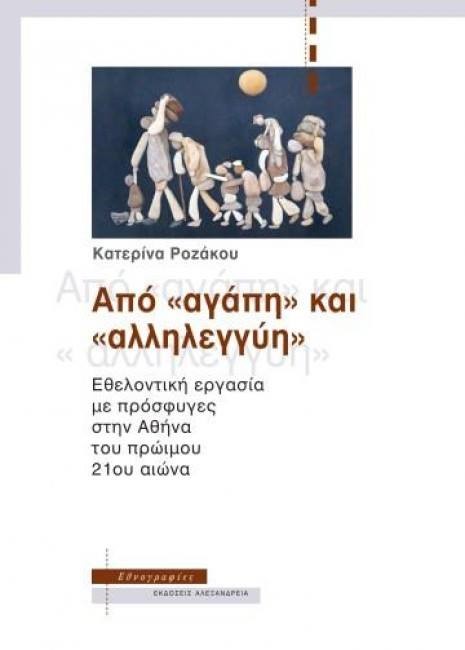
PATRICIA SCALCO (patricia.scalco@helsinki.fi) - UNIVERSITY OF HELSINKI
Patricia Scalco is a lawyer and a social anthropologist currently based in Finland. She is a double citizen of Brazil and Italy and trained as a social anthropologist in Brazil (BA), Turkey (MA) and the UK (PhD). Her research interests are broadly situated at the intersection of the subfields of anthropology of history, political and economic anthropology, and anthropology of temporal and spatial relations. Her research trajectory is informed by a sustained interest in cross-locational approaches to knowledge production, epistemological authorities, performativity of expertise, evidence, truth-making and so forth. She has explored private and public expressions of these themes through ethnographic research focused on sexual moralities and reproductive health in Turkey (Ph.D., University of Manchester) and on the impact of Mediterranean (dis)connectivity on trade, trust and loyalties within the Istanbul Grand Bazaar (postdoctoral research, University of Helsinki). She is currently a co-editor of the Journal of the Finnish Anthropological Society.
Author of
(2022). Crosslocations: rethinking locations in the Mediterranean region. (co-authored book, in progress).
(2020). Weaving value in the liminal space of the Istanbul Grand Bazaar. In Kapferer, B., and Gold, M. (eds). Liminality: Marginality, Passage and Transition. Egalitarian Series. Berghahn.
(2019). Weaving value: Selling carpets in the liminal space of Istanbul's Grand Bazaar. Anthropology Today, 35(5), 7-10.
(2016). The politics of chastity: marriageability and reproductive rights in Turkey. Social Anthropology Journal, 24(3).